Freeland’s cabinet exit sets ‘off a bomb,’ revealing Trudeau’s ‘inept’ leadership: observers
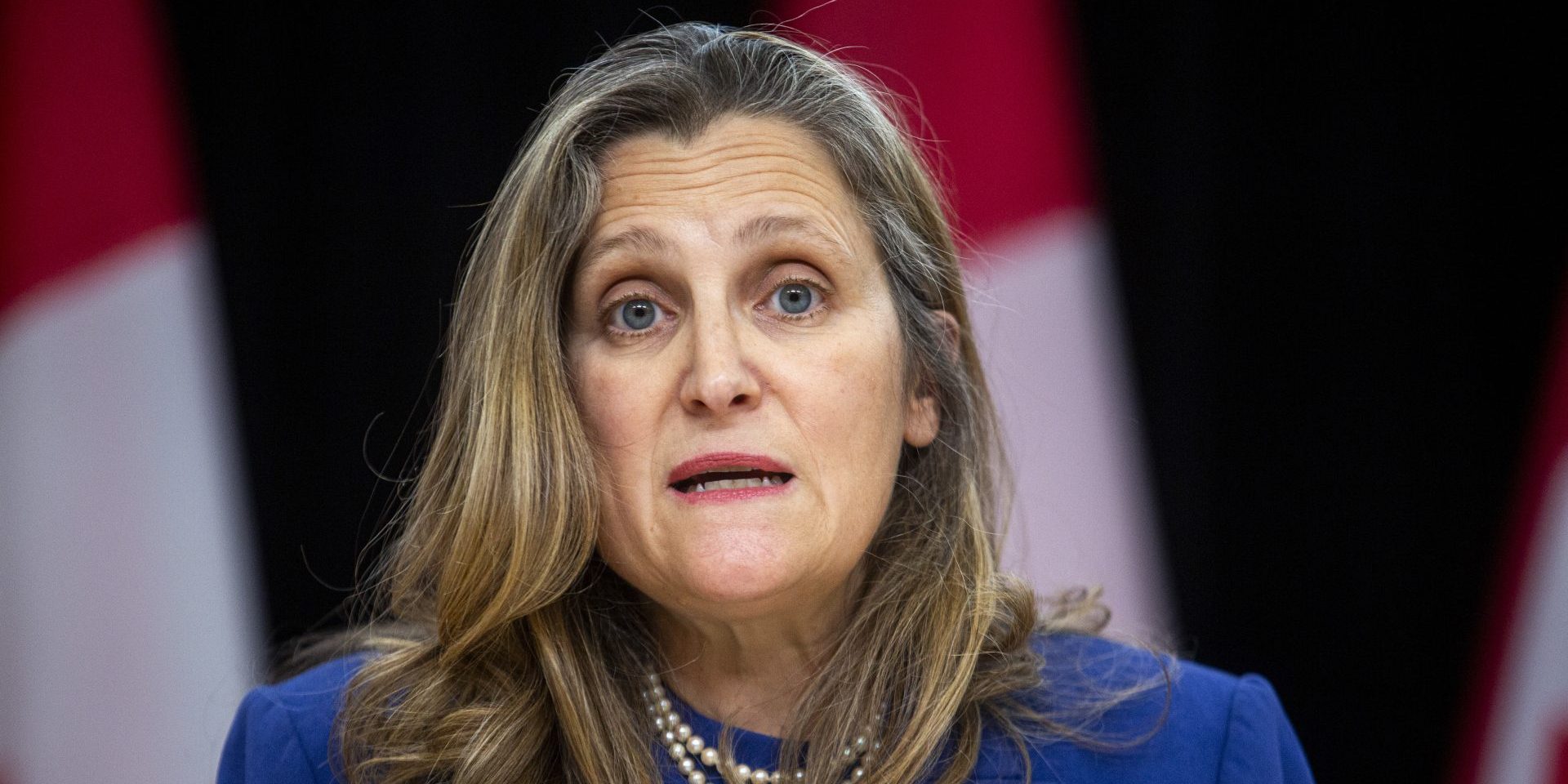
Chrystia Freeland was expected to present a fall economic statement, but instead she delivered the most serious rebuke of Prime Minister Justin Trudeau’s leadership to date.
Early on the morning of Dec. 16, as reporters were already gathering to receive an embargoed copy of the government’s latest fiscal document, the now-former finance minister released a blistering resignation letter she had delivered to the prime minister that morning.
Patrice Dutil, a professor of politics and public administration at Toronto Metropolitan University who is the co-editor of a forthcoming book on the history of Canadian cabinets, told The Hill Times that while there have been rocky departures of past finance ministers, there has never been a case of one resigning on the day a budget or economic update dropped.
In her resignation letter, Freeland (University-Rosedale, Ont.) touched on the tensions between her and Trudeau (Papineau, Que.) that had been reported on the week before.
“For the past number of weeks, you and I have found ourselves at odds about the best path forward for Canada,” wrote Freeland in her letter to Trudeau. She pointed to the “grave challenge” posed by United States president-elect Donald Trump’s threat to implement a 25 per cent tariff on all Canadian imports.
Freeland, who became finance minister in August 2020, said a serious response involves “keeping our fiscal powder dry” and “eschewing costly political gimmicks”—a likely reference to the government’s newly implemented GST holiday, and recently proposed $250 rebate cheques which now appear to be off the table because the minority government doesn’t have another party’s support for that measure.
See my letter to the Prime Minister below // Veuillez trouver ma lettre au Premier ministre ci-dessous pic.twitter.com/NMMMcXUh7A
— Chrystia Freeland (@cafreeland) December 16, 2024
Canadians “know when we are working for them, and they equally know when we are focused on ourselves,” wrote Freeland, who had also served as deputy prime minister since November 2019, and previously held other key roles in the government such as serving as foreign affairs minister during much of the first Trump presidency.
Freeland’s departure from cabinet—she said she planned to stay on as a Liberal MP—left the government without a finance minister mere hours before the fall economic statement was to be delivered.
‘Inept leadership’
Freeland’s letter said Trudeau had communicated to her on Dec. 13 that he planned to move her to a different cabinet role but still expected her to deliver the economic update on Dec. 16 before being shuffled. Trudeau’s request came amid days of leaks that the PMO was actively courting former Bank of Canada governor Mark Carney to be the new finance minister.
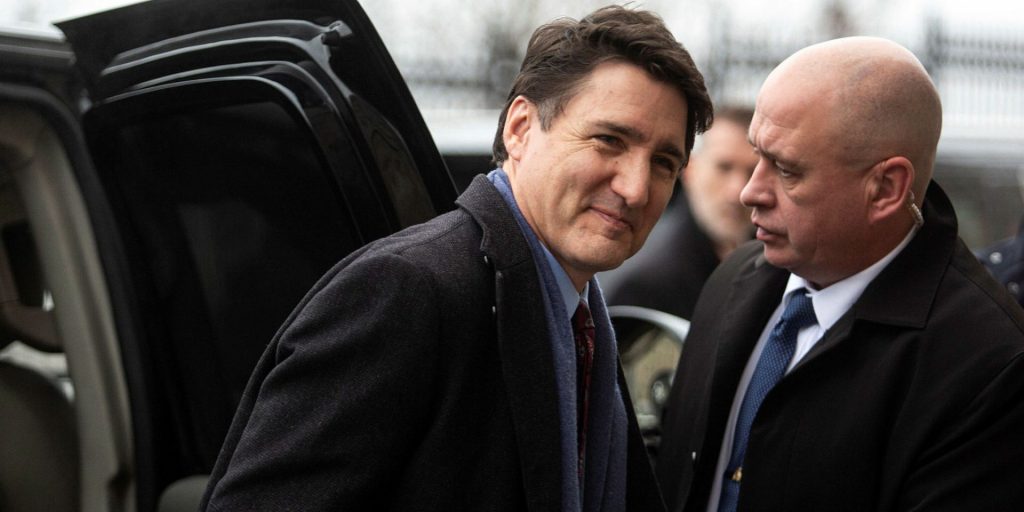
Dutil said these circumstances surrounding the split between the prime minister and his former top deputy reflect poorly on Trudeau, who faced Liberal MPs during an emergency evening caucus meeting before heading to a party fundraiser.
“I think it speaks volumes to his inept leadership,” Dutil said. “This is happening nine years into his tenure. He has not refined the craft of cabinet relations.”
Trudeau has faced a number of tumultuous departures from his cabinet during his time in office, such as former ministers Jody Wilson-Raybould and Jane Philpott in 2019.
His first finance minister, Bill Morneau, also left cabinet on seemingly poor terms with Trudeau, one of only a handful of other examples noted by Dutil of falling outs between prime ministers and finance ministers throughout Canadian history.
“By and large, Canada’s history is consistent to having an excellent relationship between prime ministers and ministers of finance,” he said. “They really have to be two peas in a pod, and that’s been a great reason for the success of this country.”
“But there are exceptions,” said Dutil.
Some of the other examples of nasty fallings out include one involving Canada’s first prime minister, John A. Macdonald, and his first finance minister Alexander Galt. Trudeau’s father, former prime minister Pierre Trudeau, had a less-than-amicable split with then-finance minister John Turner. And former prime minister Jean Chrétien eventually saw his long-serving finance minister Paul Martin leave cabinet to challenge his leadership.
Dutil said the fact that Trudeau has had a difficult parting of ways with both of his finance ministers is a further poor reflection on him.
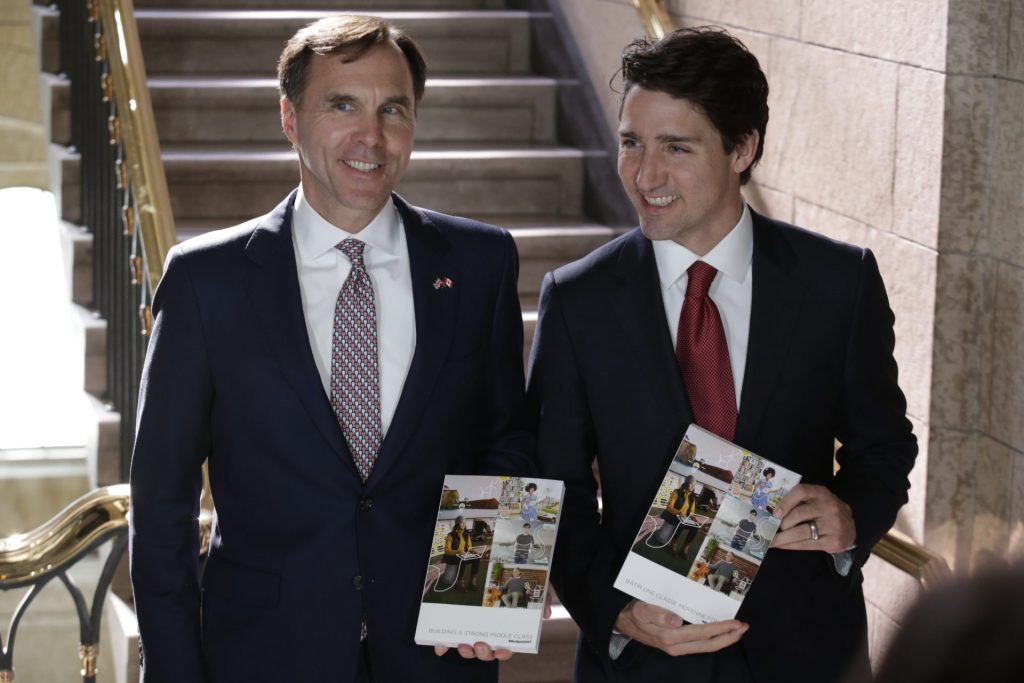
Former Liberal staffer Olivier Cullen offered a similar view, saying the approach taken by Trudeau leading up to Freeland’s resignation “shows a complete lack of judgment.”
Cullen said it is frustrating to see this come “at a time that is critical and needing the best judgment.”
He said Freeland’s expressed lack of confidence—particularly in “two very significant” policy areas regarding Canada’s relationship with the U.S., and the government’s approach to spending on affordability measures—is a serious repudiation of the prime minister.
Former Liberal staffer Nick McRoberts said “the most damning part” of Freeland’s statement was that she said “the government wasn’t listening.”
“I think she knew exactly what she was doing,” said McRoberts, regarding the impact her statement.
Government resorts to ‘improv’ as Freeland sets ‘off a bomb’
Pollster Darrell Bricker said that Freeland had “set off a bomb underneath the government,” and the Trudeau PMO had moved further “into the realm of improvisation” in response.
He noted that Freeland’s shocking exit was not the only bad news for the government that day.
The economic statement that Freeland was meant to deliver—which instead was tabled by Government House Leader Karina Gould (Burlington, Ont.) while longtime Trudeau ally Dominic LeBlanc (Beauséjour, N.B.) was sworn in on the fly as the new finance minister—saw the deficit balloon to $61.9-billion for the 2023-24 fiscal year—an increase of more than 50 per cent from the $40-billion deficit pledged in Budget 2024.
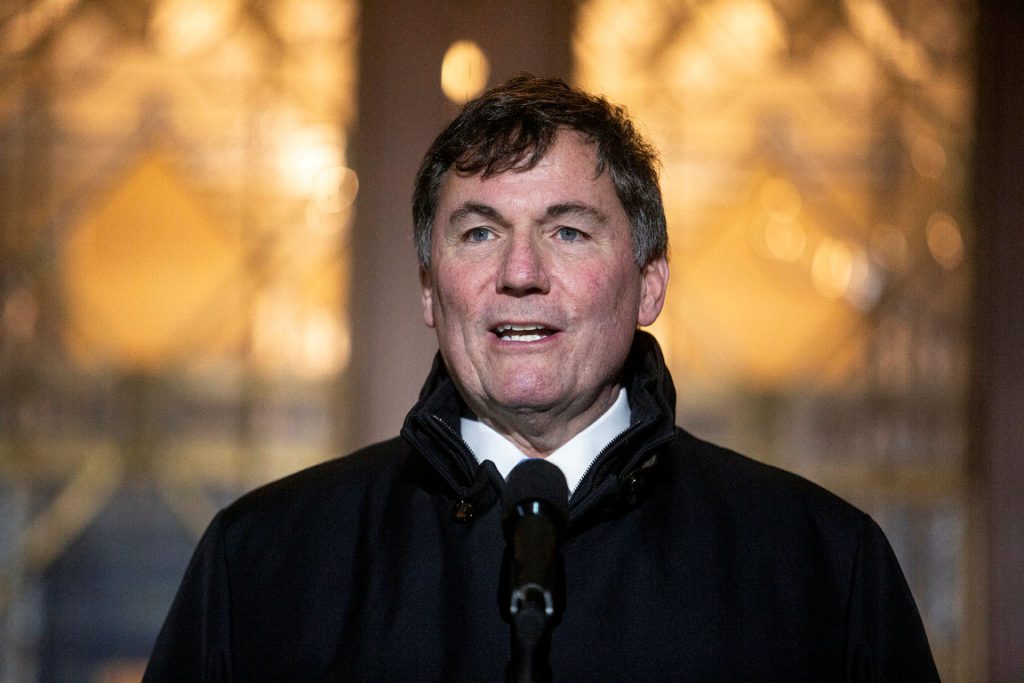
The $21.8-billion increase in the size of the federal deficit comes as a result of government revenues being $5.6-billion lower than forecast in Budget 2024, while expenses came in $16.3-billion higher than what was outlined in the spring fiscal blueprint. The document shows that “new program expenses” account for the majority of the change, but details of that spending will not be known until the government releases its public accounts that are due near the end of the year.
The long-awaited fiscal update came after weeks of delays, which Freeland had pinned on the ongoing parliamentary gridlock—even though the Speaker’s office had confirmed to The Hill Times that the document could be tabled at any time.
The update shows that the deficit for future fiscal years is also slated to rise. In Budget 2024, the deficit for 2024-25 was set to be $39.8-billion. That figure has jumped by $8.5-billion to $48.3-billion, driven by a $2.6-billion drop in forecasted revenues alongside a $5.9-billion increase in spending.
The changes to the deficit for that fiscal year include the government’s two-month GST holiday on select items. The government has forecast a loss of $1.6-billion in revenues as a result of that measure. The fiscal update does not address the possibility that Ottawa could be on the hook to pay billions more to compensate provinces with a harmonized sales tax that would be forced to drop their provincial sales tax as part of the tax holiday, meaning the fiscal hit could be larger.
The numbers for the coming fiscal year also do not include the $250 rebate cheques the Liberals proposed at the same time. If the Liberals later return to this proposal, it would have a further impact on the deficit.
Every fiscal year outlined in the document—up to 2028-29—now projects a larger deficit than was signalled in Budget 2024.
The document says the government has—by the narrowest of margins—maintained two other fiscal anchors it set for itself—a declining debt-to-GDP and declining deficit-to-GDP ratio.
However, the economic forecast rests on quicksand in the wake of the American presidential election on Nov. 5, and the subsequent tariff threat levelled by Trump.
The fiscal update states that “the department did not re-survey private sector economists following the U.S. election,” though it acknowledges there are “continued high levels of uncertainty surrounding the implications for both the North American and global economies.”
Despite that uncertainty, the document uses an economic forecast that includes a $17-billion increase in nominal GDP in 2024, and further increases in subsequent years.
Based on those assumptions, the government retains the same slight decline in debt-to-GDP ratio that it had forecast in Budget 2024—with that figure set to take a 0.1 per cent drop from 42 per cent to 41.9 per cent from the 2023-24 to the 2024-25 fiscal years.
It will continue to drop in the 2025-26 fiscal year, according to the fall economic statement, but by a smaller amount than forecast this spring. It will fall 0.2 per cent to 41.7—a decline half the size of the one forecast in Budget 2024.
Bricker said the growing deficit, multiple ministerial resignations, and the loss of a Dec. 16 byelection in British Columbia are all being handled by a government where “there doesn’t really seem to be a strategy—it’s damage control.”
Freeland ‘distanced herself in an extremely public way’
Now outside of cabinet, Freeland is set up as a serious leadership contender, said Cullen.
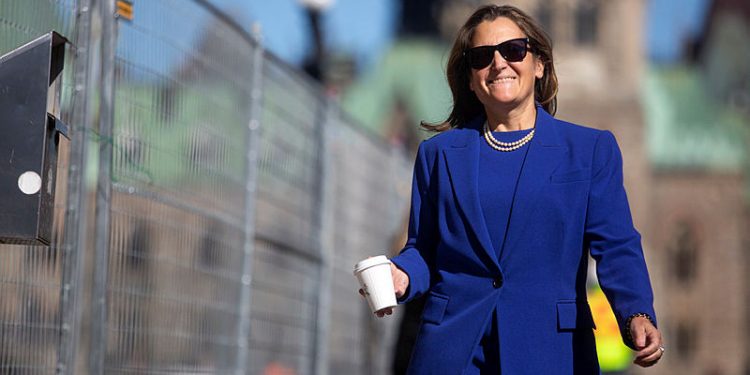
“She’s better set up as a leadership candidate now than she ever has been because no leadership candidate connected to Justin Trudeau ever had a chance,” said Cullen. “But now that she has absolutely distanced herself in an extremely public way, she is probably better suited than anybody at this time to take on some sort of leadership role.”
McRoberts also said it “tees her up well for a leadership run.”
“I think Freeland saw that there was no political win here for her, there was no policy win either, and, you know, she distanced herself,” said McRoberts.
However, Dutil is not convinced the move will alter Freeland’s legacy as finance minster—which includes presiding over a series of deficits—or set her up for a run at the top job. It’s a position that many former finance ministers have struggled to obtain.
“She’s not demonstrated any leadership qualities,” said Dutil. “I think she’d be very hard pressed to convince anyone that she’s prime ministerial material. She just doesn’t have the royal jelly.”
icampbell@hilltimes.com
The Hill Times






 LICENSING
LICENSING PODCAST
PODCAST ALERTS
ALERTS













